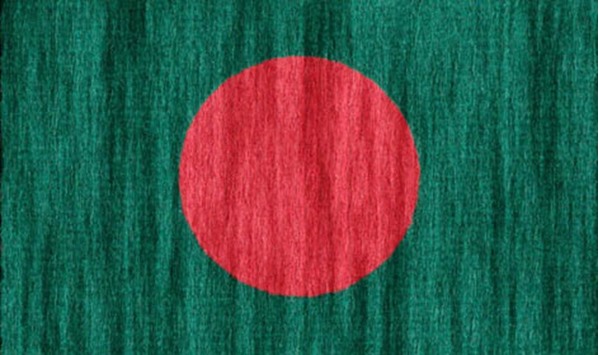Although most of the top Jamaat-e-Islami leaders have been executed, the most recent being Mir Quasem Ali, 15 war crimes cases are waiting for appeal hearing before the Supreme Court.
The Supreme Court (SC) has so far disposed of nine cases of crimes against humanity.
It has handed down the death sentence against six war criminal—Abdul Quader Molla, Kamaruzzaman,
Salauddin Quader Chowdhury, Ali Ahsan Mujahid, Motiur Rahman Nizami and Mir Quasem Ali.
They have already been executed after all legal procedures were carried out.
The SC also delivered judgment in the appeal petitions of Gulam Azam, Delwar Hossain Sayedee and Abdul Alim.
The SC awarded life in prison to Gulam Azam, Sayedee and Abdul Alim.
Gulam Azam and Alim died while serving their jail terms.
But both the defence and the state have pleaded for review of the SC judgment that had commuted the death sentence of Jamaat nayeb-e-ameer Delwar Hossain Sayedee to life imprisonment.
The state sought death penalty, while the defence appealed for acquittal of Sayedee.
The apex court is yet to hear the review petitions.
Apart from this, at least 15 cases are now pending before the apex court relating to war crimes.
Most of the convicted appellants were mid-level or even grassroots-level criminals, who terrorised their neighbourhoods.
The cases are against Jamaat nayeb-e-ameer Moulana Abdus Subhan of Pabna, fellow Jamaat man ATM Azharul Islam of Rangpur,
Mobarak Hossain of Brahmanbaria, Syed Kaiser of Habiganj, engineer Abdul Jabbar of Pirojpur, Mahidur Rahman and Afsar Hossain of Chapainawabganj, Sheikh Sirajul Haque and Khan Akram Hossain of Bagerhat, Forkan Mallik of Patuakhali, Ataur Rahman Noni and Obaidul Haque Taher of Netrokona, Shamsuddin Ahmed of Kishoreganj and Mohibur Rahman, alias Boro Miah, and his cousin Abdur Razzak of Habiganj.
Of these 15 appeals, the state has pleaded for the death sentence for Jabbar, who had been sentenced to life imprisonment by the International Crimes Tribunal-1 (ICT-1) considering his age.
The other appeals were lodged by the convicts against their sentences by the tribunal.
Two tribunals have so far disposed of 24 cases in six years.
The first special court was set up on March 25, 2010.
Trials of more than 50 accused in 18 cases are going on at the single tribunal after the merger of the two.
Jamaat leader Abdul Quader Molla was the first war criminal to be sent to the gallows on December 12, 2013.
This was followed by Mohamed Kamaruzzaman (April 11, 2015), Salauddin Quader Chowdhury and Ali Ahsan Mohamed Mujahid (November 21, 2015)
and Jaamaat supremo Motiur Rahman Nizami (May 10, 2016).
At least 62 new cases are going to be filed shortly, while hundreds are in the process of investigation, sources in the investigation agency of the tribunal said.
There are over 2,000 accused in at least 622 cases now being looked into by the investigation agency of the ICT.
The second bench (ICT-2), which was formed on March 22, 2012,
was dismantled on September 15, 2015 and the ICT-1 was reconstituted.
The ICT-1 disposed of 10 cases, and the second tribunal 11.
A Dhaka court yesterday acquitted wife and son of executed war criminal Salauddin Quader Chowdhury while it sentenced five people to different jail terms in a case filed over leaking the draft verdict of the International Crimes Tribunal (ICT) that sentenced him to death.
Dhaka cyber crimes tribunal judge KM Samsul Alam passed the order.
The court acquitted Salauddin Quader’s wife Farhat Quader and son Humman Quader from the charges while sentencing his lawyer AKM Fakhrul Islam to 10 years’ imprisonment and fined him ten mn taka, in default, to suffer six months’ more rigorous imprisonment.
Besides, the court sentenced his manager Mahbubul Ahsan,
Fakhrul’s associate lawyer Mehedi Hasan, two staff of the ICT-1 Nayan Ali and Faruq Hossain to seven years’ imprisonment and fined them 10,000 taka each, in default, to suffer six months more rigorous imprisonment.
Earlier on August 28, the Dhaka court deferred its judgment until September 15.
On August 4, Judge of the tribunal KM Samsul Alam fixed August 14 for delivering the judgment on completion of arguments in the case.
The court also sent four accused – Fakhrul, Faruq, Nayan and Mahbubul – to jail when they appeared before the court while lawyer Fakhrul’s associate Mehedi Hasan remains absconding.
On February 15, the court framed charges against seven people,
including wife, a son and a counsel for executed Bangladesh Nationalist Party leader Salauddin Quader Chowdhury, in the case.
Detective branch inspector M Shajahan submitted a chargesheet to the Dhaka metropolitan magistrate court against the seven accused on August 28, 2014.
On October 1, 2013, ICT sentenced BNP standing committee member Salauddin Quader Chowdhury to death after finding him guilty of committing crimes against humanity and genocide during the Liberation War in 1971.
However, some parts of the draft verdict were found posted on the internet several hours before pronouncing the verdict.
Later, showing the copy of the draft verdict, Salauddin’s wife and son raised a complaint that the verdict originated from the law ministry.
On October 4, a case was filed with Shahbagh police station under sections 57 and 63 of information and communication technology act.
Salauddin Quader Chowdhury was executed in the Dhaka Central Jail on November 22, 2015.

